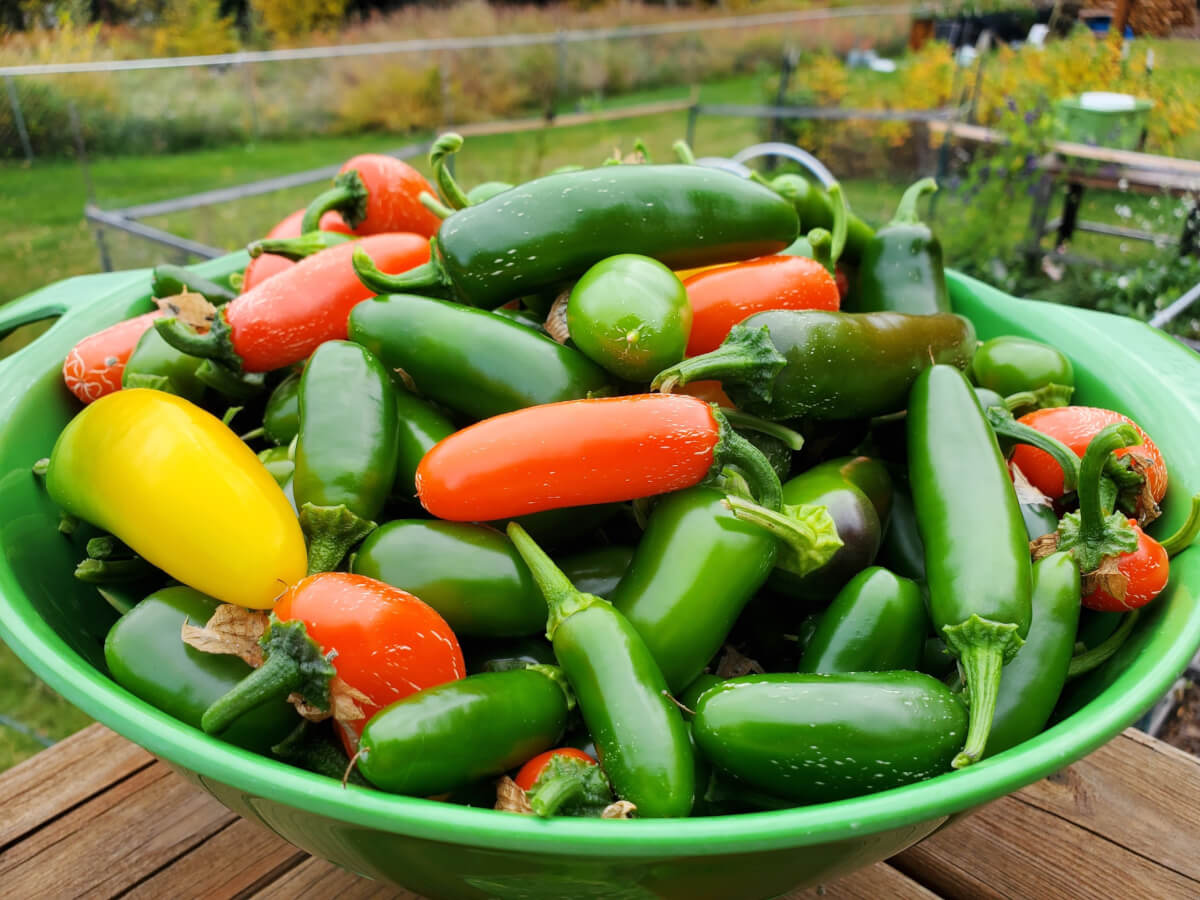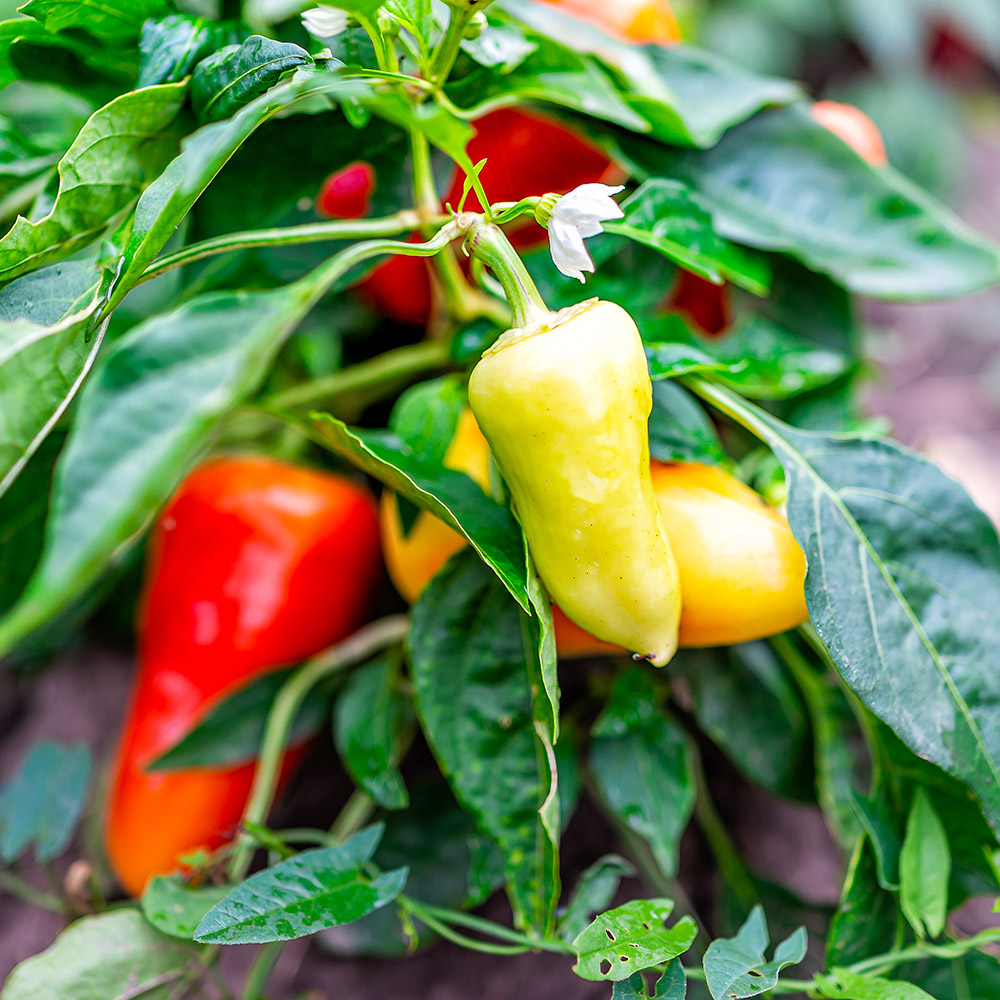Best Fertilizers for Peppers: Attain Superior Results in Your Yard
Best Fertilizers for Peppers: Attain Superior Results in Your Yard
Blog Article
Exactly How Fertilizers Play an Important Role in Growing Healthy And Balanced and Bountiful Pepper Crops
Fertilizers offer as the foundation of successful pepper growing, supplying a tactical strategy to nourishing the soil and cultivating optimal plant growth. The detailed dance between necessary nutrients and the pepper plants' physiological processes highlights the crucial role that fertilizers play in making certain a bountiful harvest.
Value of Nutrient-Rich Plant Foods
The utilization of nutrient-rich fertilizers plays an essential duty in boosting the productivity and top quality of pepper crops in contemporary agricultural practices. Pepper plants need a well balanced mix of crucial nutrients to thrive and generate high yields of quality fruits. Nitrogen, potassium, and phosphorus are main nutrients that are vital for the development and growth of pepper plants. Nitrogen help in leafy green growth and general plant vigor, phosphorus supports root development and flower production, while potassium contributes to illness resistance and fruit quality.
Poor levels of these nutrients can result in stunted growth, decreased yields, and sensitivity to conditions (best fertilizers for peppers). Nutrient-rich plant foods supply a targeted service to guarantee that pepper plants obtain the required aspects for ideal development and efficiency. Additionally, these plant foods aid enhance soil fertility in time, creating a sustainable setting for long-lasting pepper cultivation
Enhancing Plant Development and Development
To optimize plant development and advancement in pepper crops, strategic application of nutrient-rich plant foods is crucial. Plant foods play an essential role in enhancing the overall health and productivity of pepper plants by giving them with crucial nutrients that may be doing not have in the soil. Potassium, nitrogen, and phosphorus are key macronutrients needed in huge quantities by peppers for durable development. Nitrogen help in leafy environment-friendly development and general plant vitality, phosphorus supports origin development and blossom development, while potassium adds to illness resistance and fruit high quality.
In enhancement to these macronutrients, micronutrients such as iron, magnesium, and zinc are likewise important for the correct performance of different plant processes. Iron, as an example, is needed for chlorophyll production, which is crucial for photosynthesis and general plant development. Zinc plays an essential function in enzyme task and hormonal agent synthesis, affecting plant growth and advancement at a mobile degree. Magnesium is vital for the development of chlorophyll and total power transfer within the plant.

Boosting Condition Resistance With Plant Foods
By strategically incorporating targeted plant foods, farmers can reinforce the illness resistance of pepper crops, guaranteeing optimum plant health and productivity. Plant foods containing vital nutrients like phosphorus, nitrogen, and potassium play a critical function in enhancing pepper plants' immune systems, making them much more resistant to different diseases.

Taking Full Advantage Of Pepper Yield With Fertilization
Utilizing a well balanced fertilizing technique is crucial to accomplishing maximum pepper return and making certain ideal crop performance. By giving peppers with the ideal nutrients at the correct time, more info here farmers can substantially enhance their return capacity. Potassium, phosphorus, and nitrogen are essential components for pepper growth, with nitrogen helping in leaf and stem development, phosphorus supporting root growth and blossom formation, and potassium promoting general plant health.
To maximize pepper yield, it is important to conduct dirt examinations to establish existing vitamins and mineral degrees and determine any deficiencies that require to be attended to. Based on these results, farmers can develop a customized fertilization plan that fulfills the details requirements of their pepper crops. In addition, correct fertilization techniques such as split applications throughout the expanding season can ensure continual nutrition accessibility for the plants.

Sustainable Fertilizer Practices for Peppers
In thinking about sustainable fertilizer practices for peppers, it is vital to focus on long-lasting soil health and ecological stewardship in combination with maximizing plant efficiency. One crucial technique is the usage of organic plant foods such as garden compost, manure, or cover crops, which not only provide important nutrients to the peppers but additionally add to soil structure and microbial task. best fertilizers for peppers.
In addition, precision agriculture strategies, such as soil testing and targeted nutrient applications, can aid enhance fertilizer usage, making sure that peppers receive the nutrients they require without excess overflow into rivers. This not just benefits the setting by minimizing pollution yet likewise saves prices for farmers by reducing waste. By embracing sustainable plant food practices, pepper farmers can secure the health of their plants, soil, and bordering communities for future generations.
Verdict
To conclude, plant foods are necessary for cultivating plentiful and healthy and balanced pepper crops. best fertilizers for peppers. They give required nutrients for plant development and development, increase condition resistance, and optimize yield. By carrying out lasting fertilizer methods, farmers can make certain the long-term health and wellness of their pepper plants and add to a much more environmentally-friendly and efficient agricultural system
The detailed dance between necessary nutrients and the pepper plants' physical processes underscores the essential duty why not find out more that fertilizers play in guaranteeing an abundant harvest.To maximize plant development and development in pepper crops, tactical application of nutrient-rich fertilizers is necessary. Plant foods play an essential function in improving the general wellness and performance of pepper plants by providing them with important nutrients that may be lacking in the soil.By tactically integrating targeted fertilizers, farmers can reinforce the illness resistance of pepper crops, guaranteeing ideal plant health and wellness and efficiency. Fertilizers including necessary nutrients like phosphorus, potassium, and nitrogen play a critical duty in reinforcing pepper plants' immune systems, making them much more resilient to various conditions.
Report this page